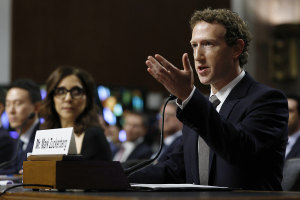The made-up hysteria over ‘Christian nationalism’ should stop

Over the last few years, the term "Christian Nationalism" has exploded into the media limelight, growing from an obscure reference to an oft-discussed topic. This trend has become particularly noticeable in recent election cycles, with a seemingly inescapable torrent of headlines and cable news panel debates. Listening to the commentary surrounding this issue could lead a casual observer to believe we are on the verge of commencing a violent religious crusade. However, further scrutiny calls into question the hype around so-called Christian nationalism.
Manufactured outrage
First, we have to understand that the media boogeyman within the Christian nationalist narrative is not new. Christian Conservatives have always resisted radical social changes and have long participated in electoral politics. To the extent that anyone believes this to be a problem (and I don’t), intellectual honesty requires all to concede this is not a new phenomenon, nor is it inherently extremist.
According to Google Trends, there were few mentions of Christian nationalism before and during the Trump presidency. Still, the use of the term skyrocketed during the 2022 midterms and has become a rising topic of discussion again during the ongoing 2024 election cycle. The media's newfound obsession with Christian nationalism is generally accompanied by cries of an impending threat to American democracy. The insistent yelping of progressive opinion leaders seems to conspicuously proliferate in election years.
Unfounded claims and the misrepresentation of faith
To be clear, there are people who proclaim religious motivation as a basis for extremist acts, but this has always been true. Although finding anecdotal evidence of people doing crazy things in the name of a faith tradition isn’t impossible, this doesn’t automatically validate the progressive media narrative around the rising threat of so-called Christian nationalism. Likewise, there is no evidence of an increase in Christians perpetrating hate crimes or a sinister, widespread plot to sabotage democracy.
Despite fervent alarm, the factual evidence points to a different reality
The belief that Christian nationalism poses a significant threat to democracy ignores reality. America has rapidly secularized, and the Christian identity has been in a state of decline for decades. Likewise, Christian practice in America is highly fragmented, with hundreds of denominations, each with its own doctrines and political preferences. This high variance in religious interpretation undermines the entire concept of Christian nationalism. There is no consensus on Christian identity to form a nationalist movement around.
Secular stigmatization and its consequences
The rebranding of traditional Christian political participation as a radical anti-democratic plot is dishonest and unfair. One would be justified in wondering if the fear-mongering around Christian nationalism serves a more insidious purpose: the stigmatization of the Christian faith. Discussing Christian faith in an almost exclusively negative context will likely denigrate religious communities by portraying them as extremists. This misrepresentation of Christianity risks exacerbating the broader cultural shift away from religious tradition and its benefits.
In fact, the real threat facing America is declining religiosity. Decades of studies have shown that those engaged with their faith tend to be happier and more charitable than their secular peers. Polling data shows that Gen Z is the least religious, the least conservative, and the most depressed generation on record. This fact highlights the irony of the current situation: in a society grappling with issues like rising youth depression, we find ourselves in the midst of what seems to be a concerted effort to push people away from the benefits of faith.
It is time to reject myths and embrace the truth: being a Christian is not radical.
The media-manufactured perception of a growing Christian nationalist threat collapses under examination of the facts. The narrative of Christian nationalism as an imminent threat is, at best, an exaggeration and, at worse, a purposeful attempt to polarize and stigmatize Christians for clicks and ratings.
Raheem Williams is an economist who has worked for numerous liberty-based academic research centers and think tanks. He received his B.A. in economics at Florida International University and his M.A. in financial economics from the University of Detroit Mercy. Raheem Williams is an MPA candidate at The University of Pennsylvania’s Fels Institute of Government.




























